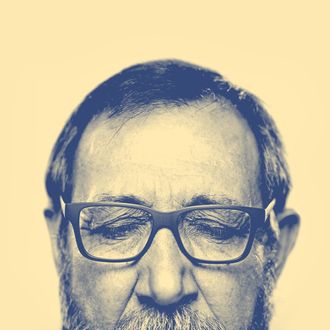
We live in a world of constant noise: phones buzzing, Gchats pinging, music blasting, cars honking, talking heads talking. It sometimes feels as if you can go an entire day without having a single moment of quiet.
WNYC’s ”Only Human” podcast explored this in Wednesday’s episode, “Take a Breather,” part of its Listen Up! series this week on listening. In the episode, host Mary Harris talks to an expert listener, Kenneth Feinberg, a mediator who works through compensation for the families of victims of tragedies like September 11, the Boston Marathon bombings, and the Sandy Hook shootings. Not light stuff, and, as Feinberg says, it takes a certain level of just being quiet and hearing out the other person — even when the speaker doesn’t believe the listener can understand the depths of their grief.
Through his work, Feinberg has learned that silence and solitude can be healing and are increasingly necessary in today’s noisy world. “I don’t think there’s enough emphasis placed on the value of solitude, especially in American life today,” he tells Harris. “And I think being alone … contemplation and silence while you sort out life’s dilemmas, I think is positive.”
With that, Harris challenges listeners to three minutes of silence. That’s right: A podcast aired 180 seconds of blank space. I tried the experiment and found myself distracted by a couple of Gchat pings, absently tapping on my keyboard, realizing I hadn’t done laundry as I’d planned and probably should, making a mental note to pick up eggs at the grocery store … in other words, while I was quiet, I wasn’t all that silent, and, as Harris herself confesses at the end of the three-minute void, it’s not at all easy and all too human to find silence, well, noisy.
But scientists have long argued that the seemingly simple goal of attaining total and complete silence in one’s surroundings and in one’s head is fundamentally good for you. In what’s probably the most in-depth piece on the field of silence, author Daniel A. Gross profiles scientists who study silence — which, ironically, often involves music and noise, like Duke University’s Imke Kirste, a regenerative biologist who in 2013 was doing what seemed like a fairly straightforward study on how sounds affected the brains of adult mice.
Instead, in a paper she co-authored titled “Is Silence Golden?” Kirste found that “two hours of silence per day prompted cell development in the hippocampus region of the brain,” where memories are formed. Silence was, in fact, better than music for creating new brain cells. This is huge: It implies that for patients with dementia or depression, silence can be downright therapeutic.
So go ahead. Put on those noise-cancelling headphones, close your eyes for three minutes, and say or do exactly nothing. Those three minutes might be the key to a more productive and happier subsequent 23 hours and 57 minutes.




